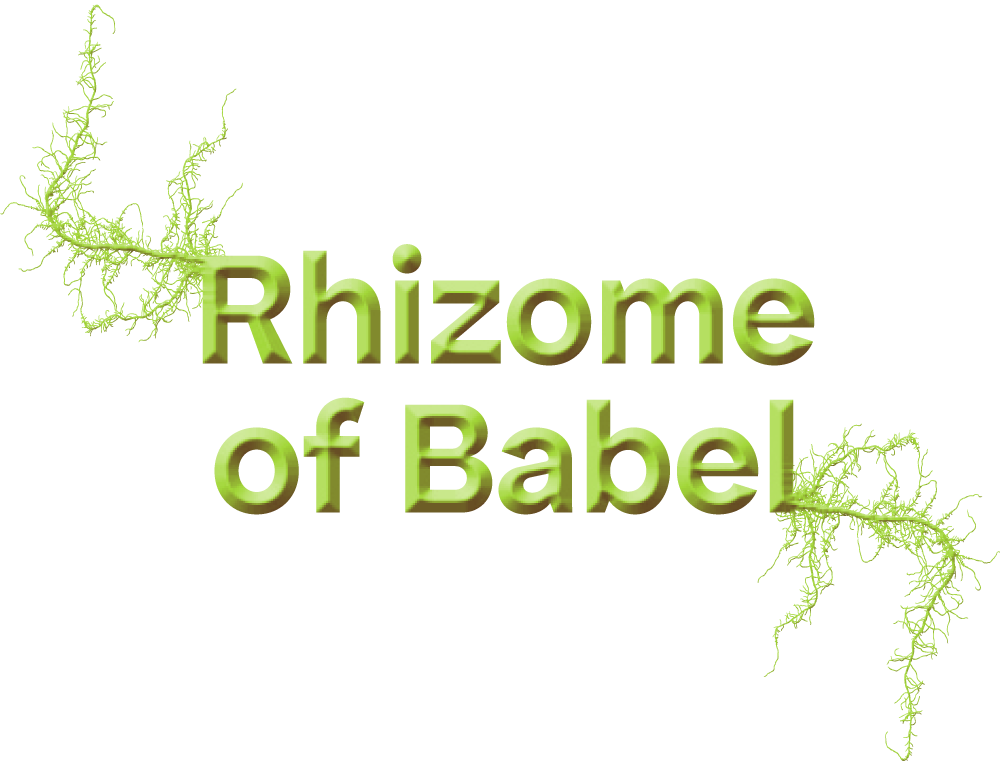


It is estimated that 1,500 of the world’s languages are at risk of becoming extinct by the end of the twenty-first century. This represents a fifth of recognized languages.
From the lack of gendered pronouns in certain languages to the preponderance of verbs relative to nouns in others, language holds different understandings of society and how we come to be in the world.
The loss of language, then, is a loss of knowledge and alternative ways of understanding the world we live in.
What is the project?
The Rhizome of Babel is an immersive digital environment created by Nigerian-Canadian visual artist Kosisochukwu Nnebe that invites participants to reconnect with their mother tongues – their distinctiveness, the knowledge they hold, the way they shape the way we see and understand the world.
The project re-examines the biblical tale of the Tower of Babel from an anti-imperialist and ecological perspective. It sees in the original story’s valorization of a unified language evidence of imperialist conquest and epistemicide (the destruction of indigenous knowledge systems and languages).
In this project, the reclamation and restitution of mother tongues becomes an act of decolonization that opens both speaker and listener to otherwise ways of knowing and being.
The installation envisions the abundance and diversity of human languages – an ecosystem in its own right – as an alternative vision of prosperity that privileges biodiversity over monoculture, opacity over transparency, relationality over hierarchy.
Rather than a tower, the project finds inspiration in a mangrove tree – one whose root system is rhizomatic, stretching in all directions – as a way asking that we develop new ways of understanding one another.
It is estimated that 1,500 of the world’s languages are at risk of becoming extinct by the end of the twenty-first century. This represents a fifth of recognized languages.
From the lack of gendered pronouns in certain languages to the preponderance of verbs relative to nouns in others, language holds different understandings of society and how we come to be in the world.
The loss of language, then, is a loss of knowledge and alternative ways of understanding the world we live in.
What is the project?
The Rhizome of Babel is an immersive digital environment created by Nigerian-Canadian visual artist Kosisochukwu Nnebe that invites participants to reconnect with their mother tongues – their distinctiveness, the knowledge they hold, the way they shape the way we see and understand the world.
The project re-examines the biblical tale of the Tower of Babel from an anti-imperialist and ecological perspective. It sees in the original story’s valorization of a unified language evidence of imperialist conquest and epistemicide (the destruction of indigenous knowledge systems and languages).
In this project, the reclamation and restitution of mother tongues becomes an act of decolonization that opens both speaker and listener to otherwise ways of knowing and being.
The installation envisions the abundance and diversity of human languages – an ecosystem in its own right – as an alternative vision of prosperity that privileges biodiversity over monoculture, opacity over transparency, relationality over hierarchy.
Rather than a tower, the project finds inspiration in a mangrove tree – one whose root system is rhizomatic, stretching in all directions – as a way asking that we develop new ways of understanding one another.